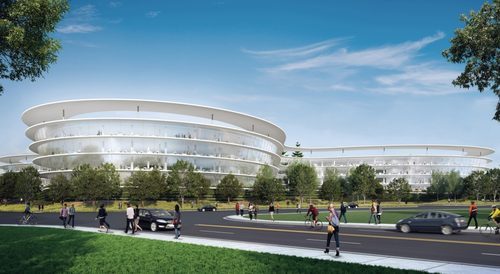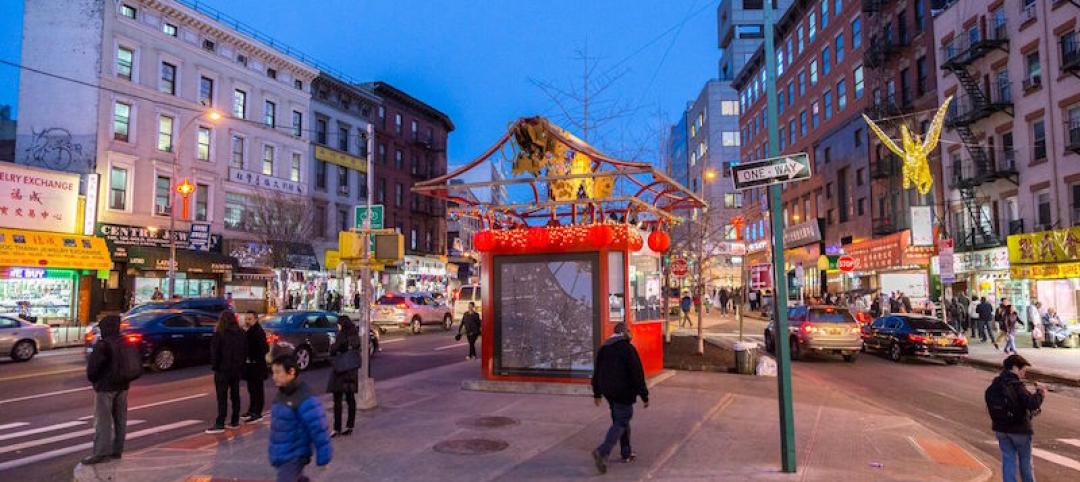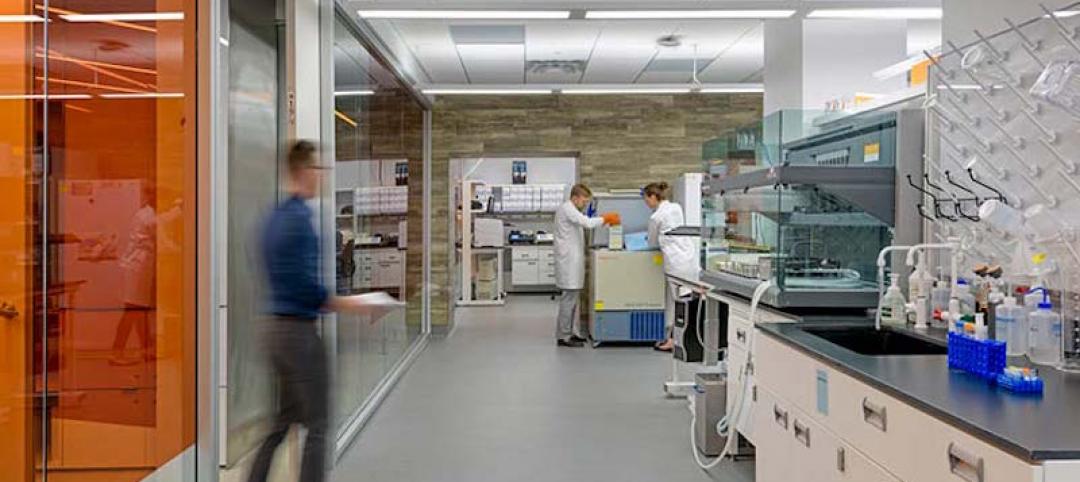Renderings released by HOK and developers Landbank, Cassidy Turley, and CB Richard Ellis show a curved, 770,000-sf campus located in a hotbed of heavyweight tech firms.
CurbedSF reports that the new Central & Wolfe campus, planned for Silicon Valley, will replace a set of "an unsightly set of sprawling cookie-cutter buildings and their surface parking lots."
Central & Wolfe will comprise three four-story office buildings and one two-story amenities building. The developers hope it will attract tech startups, with rental packages for small and large firms alike, and standard features such as 13.5-foot floor-to-floor heights, a cafeteria, fitness center, bike repair shop, banking, dry cleaner, and coffee bar.
The current renderings allow anywhere from 90,000 to 208,000 sf of rooftop gardens. The building is designed to acheive LEED Platinum certification, and will be transit accessible. Schedule completion date: March 2016.

Rendering shows the plethora of potential tenants surrounding the development.
Related Stories
Architects | Apr 20, 2017
Design as a business strategy: Tapping data is easier than you think
We have been preaching “good design matters” for a long time, demonstrating the connection between the physical environment and employee satisfaction, individual and team performance, and an evolving organizational culture.
Architects | Apr 20, 2017
‘Gateways to Chinatown’ project seeks the creation of a new neighborhood landmark for NYC’s Chinatown
The winning team will have $900,000 to design and implement their proposal.
Architects | Apr 19, 2017
Tour Zaha Hadid, Frank Gehry architecture with Google Earth
Google Earth’s new ‘Voyager’ feature allows people to take interactive guided tours.
Multifamily Housing | Apr 18, 2017
Three multifamily, three specialized housing projects among 14 recipients of the AIA’s 2017 Housing Awards
2017 marks the 17th year the AIA has rewarded projects and architects with the Housing Awards.
Projects | Apr 17, 2017
BD+C's 2017 Design Innovation Report
Façades that would make Dr. Seuss smile, living walls, and exterior wall space that doubles as gallery space are all represented in this year's BD+C Design Innovation Report.
Healthcare Facilities | Apr 13, 2017
The rise of human performance facilities
A new medical facility in Chicago focuses on sustaining its customers’ human performance.
Laboratories | Apr 13, 2017
How to design transformative scientific spaces? Put people first
While most labs are designed to achieve that basic functionality, a transformational lab environment prioritizes a science organization’s most valuable assets: its people.
Hotel Facilities | Apr 12, 2017
Hotels embrace place
Today’s hospitality environments emphasize unique, localized experiences to attract and engage guests.
Green | Apr 11, 2017
Passivhaus for high-rises? Research demonstrates viability of the stringent standards for tall residential buildings
A new study conducted by FXFOWLE shows that Building Teams can meet stringent Passivhaus performance standards with minimal impact to first cost and aesthetics.




















